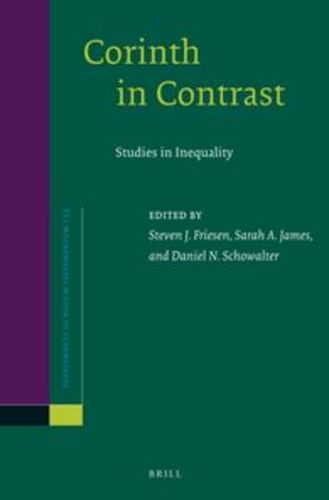Readings Newsletter
Become a Readings Member to make your shopping experience even easier.
Sign in or sign up for free!
You’re not far away from qualifying for FREE standard shipping within Australia
You’ve qualified for FREE standard shipping within Australia
The cart is loading…






In Corinth in Contrast, archaeologists, historians, art historians, classicists, and New Testament scholars examine the stratified nature of socio-economic, political, and religious interactions in the city from the Hellenistic period to Late Antiquity. The volume challenges standard social histories of Corinth by focusing on the unequal distribution of material, cultural, and spiritual resources. Specialists investigate specific aspects of cultural and material stratification such as commerce, slavery, religion, marriage and family, gender, and art, analyzing both the ruling elite of Corinth and the non-elite Corinthians who made up the majority of the population. This approach provides insight into the complex networks that characterized every ancient urban center and sets an agenda for future studies of Corinth and other cities rule by Rome.
$9.00 standard shipping within Australia
FREE standard shipping within Australia for orders over $100.00
Express & International shipping calculated at checkout
In Corinth in Contrast, archaeologists, historians, art historians, classicists, and New Testament scholars examine the stratified nature of socio-economic, political, and religious interactions in the city from the Hellenistic period to Late Antiquity. The volume challenges standard social histories of Corinth by focusing on the unequal distribution of material, cultural, and spiritual resources. Specialists investigate specific aspects of cultural and material stratification such as commerce, slavery, religion, marriage and family, gender, and art, analyzing both the ruling elite of Corinth and the non-elite Corinthians who made up the majority of the population. This approach provides insight into the complex networks that characterized every ancient urban center and sets an agenda for future studies of Corinth and other cities rule by Rome.